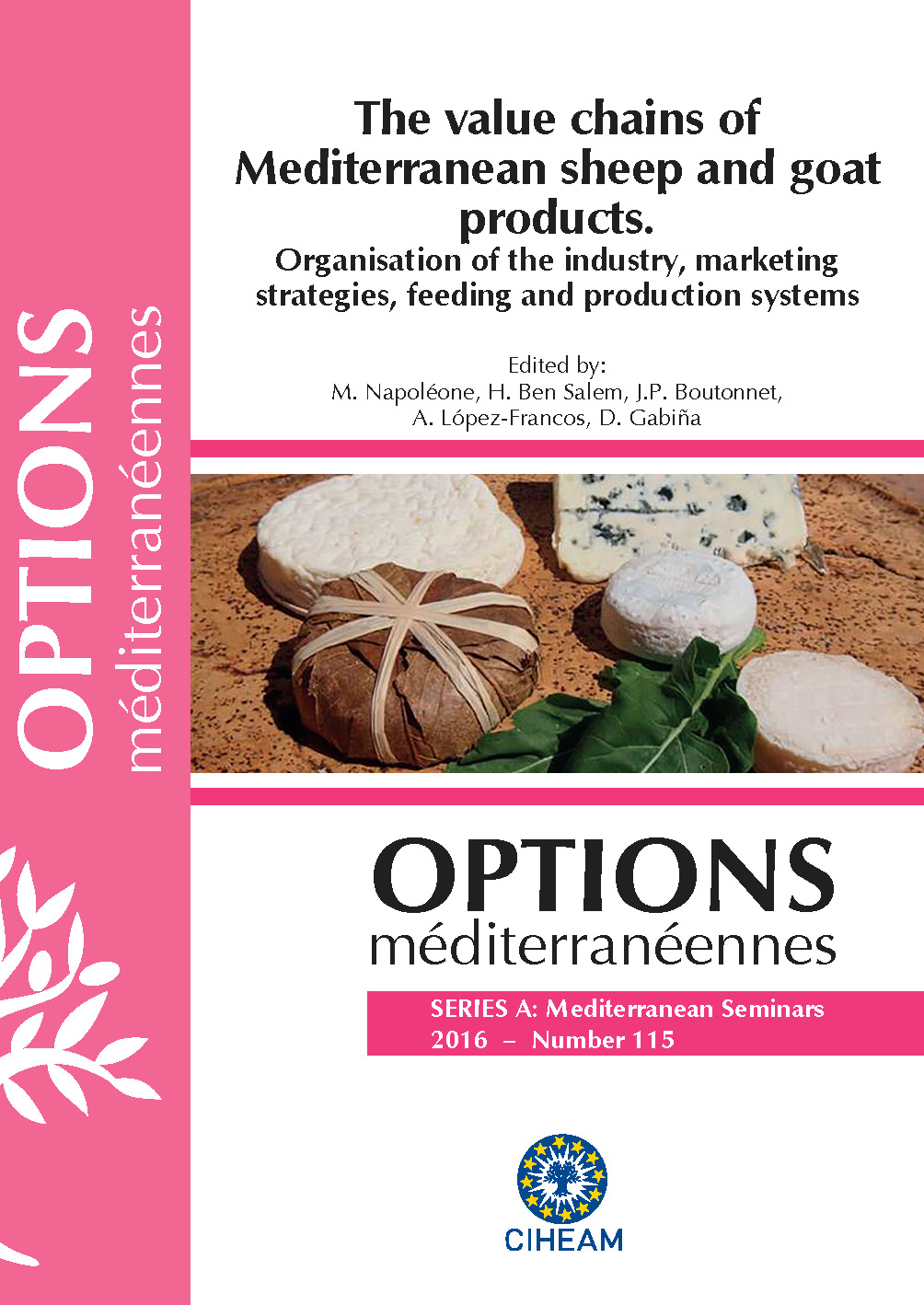| Article précédent | p. 621-625 | Article suivant |
Assessment of extensive and oasis sheep farming systems sustainability in Morocco
Nowadays a strong social worldwide demand for sustainable livestock systems is observed. These systems must be environmentally friendly, economically viable for farmers, and socially acceptable. This paper presents an adapted approach from IDEA (Indicateurs de la Durabilité des Exploitations Agricoles) method to evaluate the sustainability of 75 sheep farms selected from three production systems in the Eastern Middle Atlas of Morocco, i.e. agro-silvo-pastoral, pastoral and oasis systems. Assessment of sustainability of these production systems showed higher scores for the agro-silvo-pastoral and pastoral farms compared to the oasis ones (P<0.001). Regarding the three sustainability pillars, i.e. agro-ecologic, socio-territorial and economic, the comparison showed that farming systems differ in the agro-ecologic and socio-territorial ones (P<0.001) but not in the economic pillar (P>0.05). The analysis of sustainability scores demonstrated that the sustainability of both agro-silvo-pastoral and pastoral farms is limited by the socio-territorial aspects, while the agro-ecological aspects seem to be the weak points of the oasis farms. Consequently, improving these aspects could on one hand, improve the global sustainability of the three sheep farming systems and on the other hand, guarantee the continuity of this sector in the Moroccan Eastern Middle Atlas area.
On assiste actuellement à une forte demande sociétale pour des systèmes d’élevage durables. Ces systèmes doivent être respectueux de l’environnement, économiquement viables pour les éleveurs, et socialement acceptables. Cet article présente une approche adaptée de la méthode IDEA (Indicateurs de la Durabilité des Exploitations Agricoles) pour évaluer la durabilité de 75 exploitations ovines sélectionnées de trois systèmes de production ovine dans le Moyen Atlas Oriental du Maroc, à savoir le système agro-sylvo-pastoral, pastoral et oasien. L’évaluation de la durabilité de ces systèmes de production a montré que les exploitations agro-sylvo-pastorales et pastorales ont présenté des scores élevés en comparaison avec ceux des exploitations oasiennes (P<0,001). Concernant les trois piliers de durabilité, à savoir agro-écologique, socio-territorial et économique, la comparaison a montré que les systèmes de production diffèrent pour les piliers agro-écologique et socio-territorial (P<0,001), mais pas pour le pilier économique (P>0,05). L’analyse des scores de la durabilité a montré que la durabilité des exploitations agro-sylvo-pastorales et pastorales est limitée par les aspects socio-territoriaux, alors que les ceux d’ordre agro-écologique semblent être les points faibles des exploitations oasiennes. Par conséquent, l’amélioration de ces aspects pourrait d’une part, améliorer la durabilité globale des trois systèmes de production ovine et d’autre part, garantir la continuité de ce secteur dans la région du Moyen Atlas Oriental du Maroc.
- [ Afficher ]
- [ Télécharger ]
- [ Exporter la citation ]
Vous pouvez télécharger la citation au format :
- [ Imprimer ]
-
Mots-clés
DURABILITE, MAROC, OVINCiter cet article
Araba A., Boughalmi A. Assessment of extensive and oasis sheep farming systems sustainability in Morocco. In : Napoléone M. (ed.), Ben Salem H. (ed.), Boutonnet J.P. (ed.), López-Francos A. (ed.), Gabiña D. (ed.). The value chains of Mediterranean sheep and goat products. Organisation of the industry, marketing strategies, feeding and production systems. Zaragoza : CIHEAM, 2016. p. 621-625. (Options Méditerranéennes : Série A. Séminaires Méditerranéens; n. 115). Joint Seminar of the Subnetworks on Nutrition and on Production Systems of the FAO-CIHEAM Network for Research and Development in Sheep and Goats, 2015/06/16-18, Montpellier (France) . http://om.ciheam.org/om/pdf/a115/00007342.pdf



